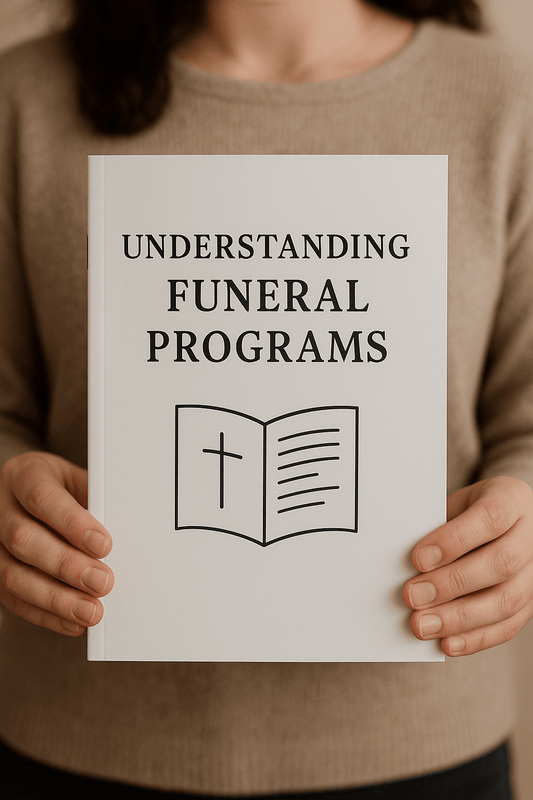What Is A Funeral Folder?
Understanding the Significance of Funeral Folders: A Comprehensive Guide

Losing a loved one is an emotionally challenging experience, and amidst grief, there are numerous arrangements to be made. Funeral services encompass various elements, one of which is the funeral folder. While often overlooked, funeral folders play a significant role in commemorating the departed and providing essential information to mourners. In this comprehensive guide, we delve into what funeral folders are, their purpose, and why they hold such importance in the funeral process.
What is a Funeral Folder?
A funeral folder, also known as a memorial folder or a funeral program, is a printed document distributed to attendees at a funeral or memorial service. It typically serves as a guide to the proceedings of the service and contains information about the deceased, details of the service, and sometimes additional content such as poetry, scriptures, or photographs. These folders are usually distributed at the entrance or handed out to attendees as they arrive.
The Purpose of Funeral Folders:
Honoring the Deceased: Funeral folders often include biographical information, photographs, and anecdotes that celebrate the life of the departed. This serves as a tribute to their memory and allows mourners to reflect on the life they lived.Providing Information: Funeral folders serve as a guide to the funeral or memorial service, outlining the order of events, readings, prayers, and any other important details. This helps attendees follow along and participate in the service respectfully.
Keepsake for Mourners: Funeral folders often become cherished keepsakes for those who attend the service. They provide a tangible reminder of the person who has passed away and serve as a connection to the memories shared during the service.
Comfort and Support: During times of grief, having a tangible item like a funeral folder can provide comfort to mourners. It serves as a physical memento of the service and can be revisited in moments of reflection.
Components of a Funeral Folder:
Cover: The cover of a funeral folder typically features the name of the deceased, their date of birth and death, and often a photograph. It may also include a meaningful quote or scripture.Order of Service: This section outlines the sequence of events during the funeral or memorial service. It includes details such as prayers, hymns, readings, and any other rituals planned for the service.
Biographical Information: Funeral folders often contain a brief biography of the deceased, highlighting significant milestones, achievements, interests, and relationships.
Poems, Readings, or Scriptures: Some funeral folders include poems, readings, or scriptures that hold special meaning to the deceased or their family. These can provide comfort and inspiration to mourners.
Acknowledgments and Thanks: In some cases, funeral folders may include a section for acknowledgments and thanks, where the family expresses gratitude to those who have offered support and assistance during their time of loss.
Design and Customization:
Funeral folders come in various designs and styles, ranging from simple and elegant to more elaborate and personalized. Families often have the option to customize the design, choosing colors, fonts, and imagery that reflect the personality and interests of the deceased.
Conclusion:
Funeral folders may seem like a small detail in the midst of loss and grief, but they serve a crucial role in honoring the departed and providing comfort to mourners. By documenting the life of the deceased, guiding attendees through the service, and offering a tangible keepsake, funeral folders play an important part in the funeral process. As families gather to mourn and remember their loved ones, these humble documents serve as a lasting tribute to lives well lived.




